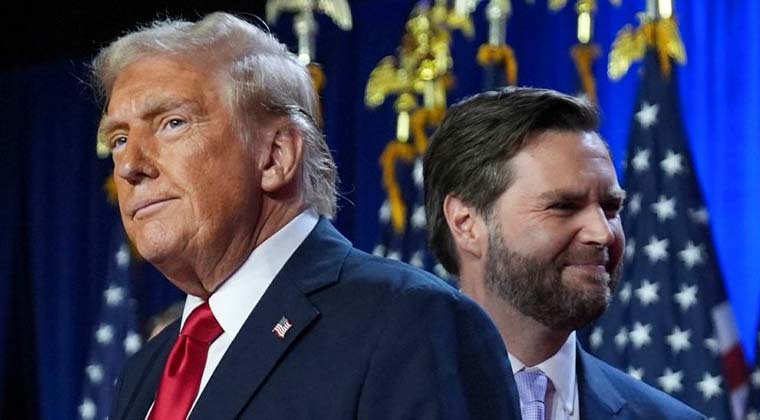In a historical comeback, Donald Trump has won the 2024 U.S. presidential election, marking his second term as the country’s leader. This victory is set to reshape the political landscape, and many anticipate significant shifts in domestic and international policies as he takes the reins once more. With widespread discussions and debates, the country faces a new chapter, and expectations are high.
Key Factors in Trump’s Win
Trump’s victory in 2024 came amidst a complex political climate marked by economic challenges, social concerns, and shifting global alliances. His campaign focused heavily on themes of national security, economic revitalization, and challenging the influence of tech and media companies, which many supporters felt resonated in light of recent crises. Trump’s “America First” slogan also took center stage, with promises to prioritize American businesses, bolster manufacturing, and curb immigration. Despite polarizing rhetoric, his message of strength and sovereignty struck a chord, particularly with voters who felt disillusioned by establishment politics.
Economic Revitalization and Deregulation
Trump’s plans for economic recovery revolve around tax cuts, regulatory rollbacks, and policies to encourage domestic manufacturing. This includes incentives for companies to keep jobs within the U.S. and a renewed focus on the energy sector, particularly oil and gas. Trump has indicated his intention to ease environmental regulations to boost these industries, promising economic growth but raising concerns among environmental advocates.
Financial markets have responded with cautious optimism to his victory, and there are expectations of tax reductions for corporations and individuals alike. Trump’s proposed fiscal policies could mean a shift toward a freer market, which he hopes will stimulate economic growth. However, there remains skepticism regarding how effective these measures will be in light of inflation concerns and recent economic disruptions.
Foreign Policy and Global Relations
Trump’s foreign policy is expected to remain assertive and centered on American interests. Known for his tough stance on China, Trump may continue pressing for more stringent trade policies and potentially ramp up sanctions on Chinese industries. Relations with allies in Europe could also face strain if he follows through with previous demands for NATO countries to increase their financial contributions.
Trump’s Middle East policies are likely to emphasize military strength and alliances with Israel. A return to the Middle East policies of his first term could mean support for military interventions when deemed necessary, and stricter controls on negotiations with Iran over nuclear programs.
Technology and Media Accountability
Trump’s rhetoric on reining in “Big Tech” has intensified, especially as debates on censorship and freedom of speech escalate. He has promised regulatory changes that would reduce the power of tech giants and increase transparency on their practices. A proposed change is to revisit Section 230, the legal provision protecting tech companies from liability for user-generated content, which could mean stricter oversight on platforms such as Twitter and Facebook.
In addition to tech accountability, Trump has expressed interest in media reform, aiming to challenge what he perceives as bias in news coverage. Proposed changes could involve new standards for transparency in journalism and possible incentives for news sources to disclose their affiliations and funding sources.
Immigration Reform and Border Security
Immigration remains a priority for Trump, who has vowed to strengthen border security and possibly reintroduce policies from his previous term. This includes plans to build additional barriers along the U.S.-Mexico border and stricter immigration regulations. He has proposed a faster deportation process for undocumented immigrants and new legislation to limit asylum claims.
These policies could face significant pushback, both domestically and internationally. However, Trump’s supporters argue that stronger immigration controls are essential for national security and the job market.
Judicial Appointments and Social Policy
A significant influence of Trump’s administration could be felt in the judiciary. With control over federal judicial appointments, Trump may have opportunities to solidify a conservative-leaning Supreme Court and federal judiciary, shaping U.S. legal interpretations for years. On social policies, Trump has shown support for restricting abortion access and limiting policies related to gender identity in government programs and educational settings.
Domestic Stability and Political Climate
Trump’s win has underscored a deeply polarized nation, with both his supporters and detractors feeling more emboldened than ever. Trump has promised that his administration will work to unify the country, although his critics worry that the continuation of his often-divisive rhetoric could further deepen divides.
As Trump prepares to take office in 2025, the road ahead is certain to be complex. His vision for the U.S. entails profound changes in areas that impact all Americans, and his policies will likely generate significant debate and scrutiny from both domestic and international communities. The next four years promise to be dynamic, with Trump aiming to fulfill his campaign promises while navigating the challenges of a deeply divided America.

